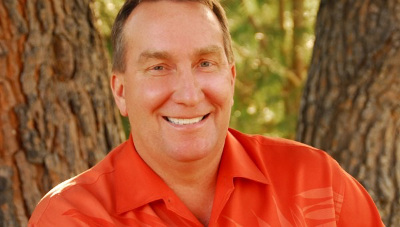They may be painful to come to grips with, but there are some staunch realities that come with being a pastor. Here are some things to take to heart.

Page 184 of 209

They may be painful to come to grips with, but there are some staunch realities that come with being a pastor. Here are some things to take to heart.

Do you sometimes take the enemy lightly, or are you always leery of his cunning little tricks? Here are some things to watch out for.

Staff meetings do not have to be a necessary evil. Here's how they can be productive.

Are you thinking of ways to gain more authority, or are you prayerfully discerning what God would have you do with the authority you have already been given?

Policies help build systems and processes that meet the demands of a growing church. But are we replacing an utter dependence on God with them?

Sometimes it's lonely at the top, and the pressures can be intense and overwhelming. Pastor Dan Reiland says you can handle them your way or God's way—it's your choice.

Do you have a problem with insecurity? Find out why you might be missing out on some opportunities due to shyness or an introverted personality.

Busyness diets are not always easy or pleasant. However, LifeWay's Thom Rainer says they can make the difference between a simply busy church and a fruitful church.

Author and media consultant Phil Cooke explains why the Bible is focused more on reality and why people need pastors to be direct.

Pastor or church leader, have you considered continuing your education? Chuck Lawless, professor of evangelism and missions and dean of graduate studies at Southeastern Seminary, gives many good reasons why you should.

Mark Brewer suddenly found himself with a new calling after dealing with numerous church leaders who left the ministry in frustration. Find out what his Ministry Lab is all about.

The movie Patch Adams is an inspiring, feel-good film starring Robin Williams. The real Patch Adams, however, is someone whose Christ-like character most people should aspire to emulate.

What is the one thing that holds most leaders (and the organizations they lead) back?
It's simple: the unwillingness to make a really hard decision.
Most leaders know the decisions that need to be made, the hard conversations that need to be had, the programs that need to be done away with or the people who need to be replaced. They simply lack the courage to do it.

God did something amazing in my heart recently (but it's not about me). God did something amazing in our church (but it's not about us).
I could share stories and testimonies with you all day (and maybe one day I will), but right now they're too dear and precious to my heart. They're too fresh. I know you understand.

The movie A River Runs Through It is narrated by Norman, one of the main characters. He makes this statement about his father, a minister:
"My father was very sure about certain matters pertaining to the universe. To him, all good things - trout as well as eternal salvation - came by grace; and grace comes by art; and art does not come easy."
While we rightly view grace as a free gift, grace always costs someone something.
 My wife loves to put together jigsaw puzzles. I’m not patient enough to always help, but I do try as much as I can stand it. A couple of Sundays we were on the back porch and I was watching Georgie put a puzzle together.
My wife loves to put together jigsaw puzzles. I’m not patient enough to always help, but I do try as much as I can stand it. A couple of Sundays we were on the back porch and I was watching Georgie put a puzzle together.
Here are three lessons the church can learn:
1. You have to look at the big picture first. She always starts with the box in front of her. When she can see the big picture, she can then start to put the pieces together. In the church world, always start with the big picture. The Great Commission and the vision God has given your church should be the backbone of everything.
 Every once in a while, someone comes up with a new wrinkle on church headaches.
Every once in a while, someone comes up with a new wrinkle on church headaches.
A young pastor friend wrote to say the church he now serves went through a split a year or so before he arrived, and the smaller congregation struggles to keep up with the financial needs. Presently, they are running a deficit of perhaps $10,000 a year, forcing them to draw on reserves.
The church has a number of fixed expenses, he says, such as utilities and insurance that cannot be cut. Even if they eliminated all literature and supplies, the deficit would still not be covered. His suggestion is that they cut his salary by $10,000 a year. The leadership refuses.
 A lot of times we can get into the results game or the comparative game and lose sight of what matters most. We think if only I had that building, that equipment, more staff or more money, then we would be able to do ministry better.
A lot of times we can get into the results game or the comparative game and lose sight of what matters most. We think if only I had that building, that equipment, more staff or more money, then we would be able to do ministry better.
I’ve learned that if you start playing that game it’ll never end. You will always feel like you can do better ministry with more. I think we all know this but sometimes need to be reminded.
God has us where we are, for the work He has for us to do.
 My mentor, John Maxwell, has written and spoken about being mentored by the great coach John Wooden among others. I recently received a question by email asking, “How does one go about getting the greatest NCAA coach (John Wooden) as a mentor?
My mentor, John Maxwell, has written and spoken about being mentored by the great coach John Wooden among others. I recently received a question by email asking, “How does one go about getting the greatest NCAA coach (John Wooden) as a mentor?
"Did he (Maxwell) just ask for regular meetings and what does mentorship look like?”
Good questions.
I will admit that getting John Wooden as a coach is an extraordinary circumstance involving an extraordinary leader. But on the other hand, John Maxwell didn’t start there.
It was only after nearly 30 years of successful leadership that John was able to connect with Coach Wooden. It was John’s desire to grow and his great passion to add value to people’s lives that made the difference. The fact that John is a tremendous student is also a very significant part of the story.
Over the years I’ve wondered which is more important—to have a great mentor or to be a great student? The easy answer is both. But more and more, I think the secret is in being a great student. You can have the most brilliant mentor in the world, even a famous one, but if you aren’t ready to pay the price, dig in, learn and change, it won’t matter.
I love John’s early stories about offering to pay $100 for an hour of someone’s time just to ask questions and learn. Back then, $100 might as well have been $1,000! But that didn’t matter to John. That showed how serious he was, and at age 65, John is still passionate about learning and growing. I think that’s one of the reasons his books and talks are so good. They come not only from (now) 40 years of experience, but also from a fresh place of learning and relevancy.
In contrast, I’ve seen men and women receive an hour or so of someone’s time and show up ill-prepared. They had no written questions. They talked more than listened and expressed very little gratitude. It was almost as if they had some time to kill and thought that might be fun. When you do that to a busy person, they will not give you a second meeting.
So, do you want a mentor? Let me offer some good advice.
1. Be good at something first. This might sound strange, but you need to be good at something before you ask someone to help you be great at something. You can be good at anything! That doesn’t matter. You may want to be a great leader and your only claim to fame is that you are really good at golf or giving a talk. Maybe you are brilliant at math or a technological genius type. Here’s the point: If you are good at something, you have shown the passion and discipline to create the needed potential to become great at what you really want. I don’t want to discourage you, but if you’ve just been hanging out and you’ve never worked hard at anything, you’re not ready for a mentor. Perhaps you’re a young adult and your only claim to fame is that you were an A student in college. Great! That’s what I’m talking about. Get good at something first.
2. Seek someone just a little ahead of you. A common mistake is to think, “If I’m going for a mentor, I’m going right to the top and getting the best.” I appreciate the sentiment, but you are likely making a mistake. For example, if a pastor who serves in a church of 500 seeks a mentor who pastors a church of 5,000, the two of them clearly live in two different worlds and they barely speak the same language. Yes, leadership principles are leadership principles. That’s true, but trust me on this, and this is the key: You are much better off being mentored by someone who understands where you are because they were there at one time, and maybe even not so long ago! If you lead a church of 500, try to get a mentor who leads a church of 800 to 1,200. This is not a legalistic thing. Don’t get hung up on the numbers; just go with the idea. And of course, make the ask.
3. Think intentionally organic. Don’t ask for lots of regularly scheduled meetings. You will likely lose a potential mentor that way. Don’t ask for monthly or even quarterly connects. Go for a more intentionally organic approach. Here’s what I mean. If you can hang with a couple meetings (phone or in person) a year plus a few short emails, you might be surprised by how quickly you get a yes. Intentional refers to staying strategic and on purpose, and the organic simply means to catch the meetings when it works out naturally in both your schedules.
You don’t need lots of meetings, not if you really want to change and grow. Information requires lots of meetings—transformation requires only a few. If you connect with a good mentor two or three times in a year, that is plenty. It will take you at least that much time between conversations to really put to practice what was given to you. Now let’s do the math. If you have two or three mentors, you can see that would be six to nine meetings a year—basically way too much.
Note No. 1: When it’s a boss/employee relationship, of course you meet much more often, but much of that is just “doing business.” That’s natural and normal. It is unrealistic to think that’s all mentoring. In fact, if it is, you are likely into something closer to a counseling relationship than coaching and mentoring.
Note No. 2: When it’s a crisis situation, everything changes. If it’s a true crisis, your mentor will get that and quickly respond, and that requires more time. Sometimes in those situations I encourage the one I’m coaching to hire a consultant who can devote the needed time, and I remain as chief encourager during that crisis time.
4. Work harder than your mentor. Don’t waste your mentor’s time. Show up with well-thought-through and relevant questions. Take notes. Work hard to practice what was discussed, and the next time you talk, tell him or her what you have done.
A good mentor will always have some questions, a resource or two, and good advice, but the mentoring is more your job than his/hers. You set the agenda and come with it in writing. If your mentor asks you to do something, make the necessary adjustments, but do it. This does not prevent healthy disagreements and intense conversations, but you either want their advice or you don’t. If you don’t, that’s OK, but then stop taking their time, and end the mentoring relationship with respect and gratitude.
I’ve been blessed with five mentors over the course of my life, and I’m grateful! I’m sure that’s part of the reason I’m eager to coach as many as I can. I trust that you will also pass on what is given to you.
Dan Reiland is executive pastor of 12Stone Church in Lawrenceville, Ga., listed in Outreach magazine as the No. 1 fastest-growing church in America in 2010. He has worked closely with John Maxwell for 20 years, first as executive pastor at Skyline Wesleyan Church in San Diego, then as vice president of leadership and church development at INJOY. His semi-monthly e-newsletter, The Pastor’s Coach, is distributed to more than 40,000 subscribers. Dan is the author of Amplified Leadership, released in January 2012.
 I heard the story again last week. A pastor I know announced his resignation. No moral failure. No severe crisis at the church. No major family problems. No sickness. He was simply burned out. That’s how he described it. He said he had gotten to the point that he was having trouble putting one foot in front of the other.
I heard the story again last week. A pastor I know announced his resignation. No moral failure. No severe crisis at the church. No major family problems. No sickness. He was simply burned out. That’s how he described it. He said he had gotten to the point that he was having trouble putting one foot in front of the other.
So he quit, without another job. His church family was stunned.
I admit I haven’t seen recent statistics on pastoral burnout but, at least anecdotally, it’s high. It seems that hardly a week goes by that I don’t hear another story of a burnout victim in pastoral ministry.